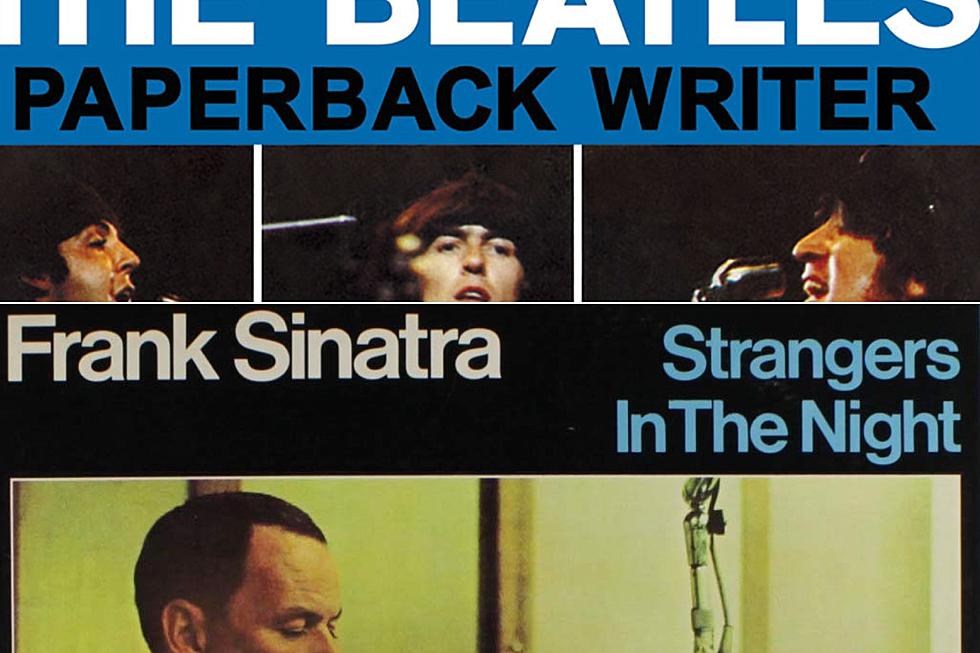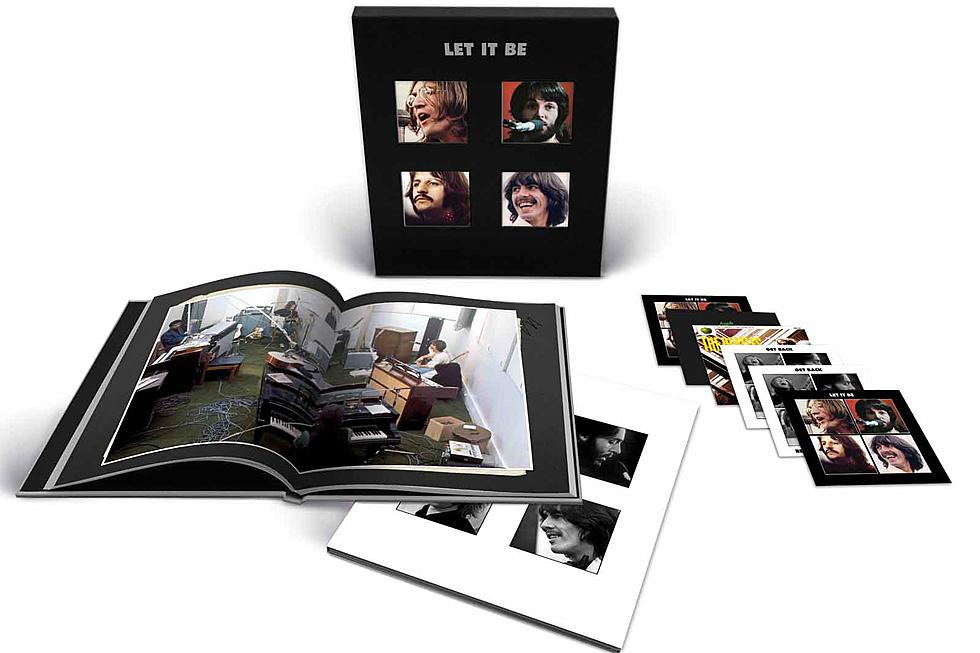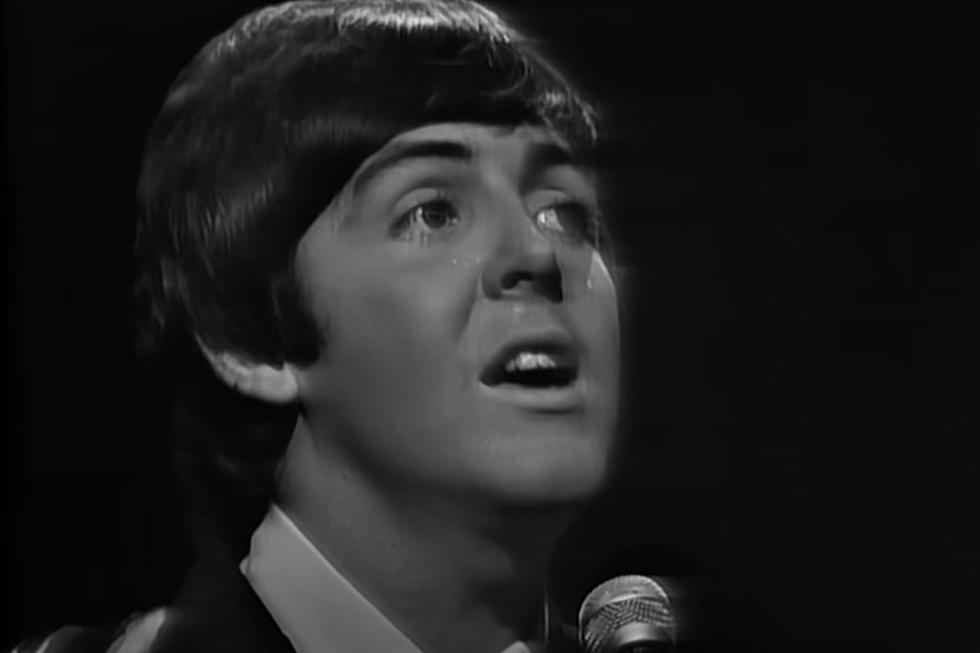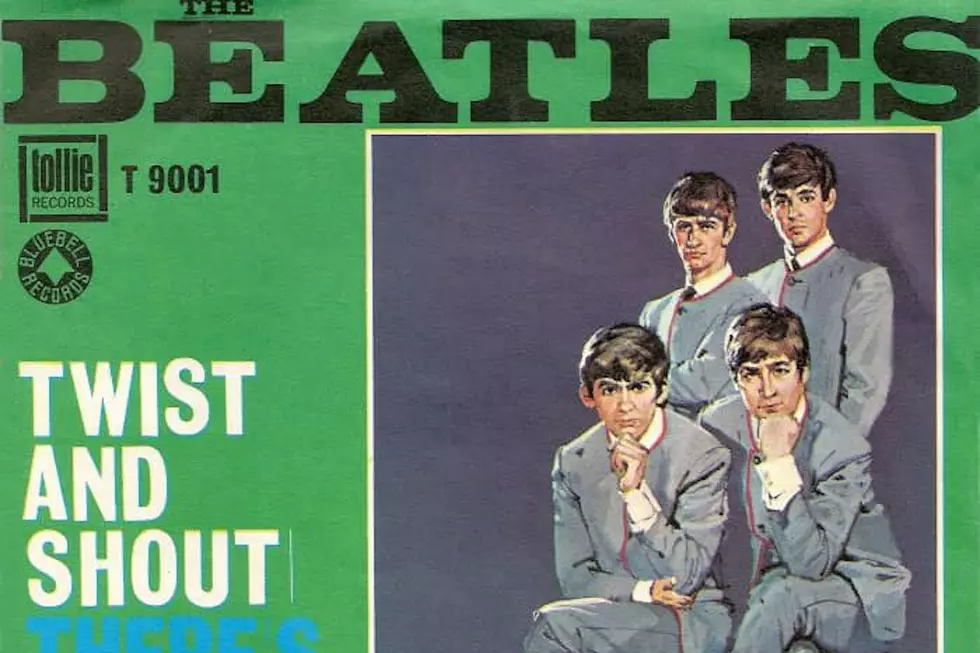
55 Years Ago: The Beatles Battle Frank Sinatra for Song of the Summer
The Beatles and Frank Sinatra were from disparate universes: The Beatles sang “A Day in a Life”; Sinatra sang “That’s Life.” The Fab Four floated down rivers with tangerine trees and marmalade skies. Ol' Blue Eyes crooned about gritty cities like New York and Chicago.
John Lennon, Paul McCartney, George Harrison and Ringo Starr smoked dope, dropped acid, meditated with Maharishi Mahesh Yogi, and reinvented pop music over and over again. At least early on, the Chairman of the Board described these type of songs as a “deplorable, a rancid-smelling aphrodisiac” that “fosters almost totally negative and destructive reactions in young people.”
Both sought to redefine music, however, while fighting for the hearts, minds and ears of millions – and they were actually right alongside each other. The best evidence was when the Beatles’ “Paperback Writer” and Sinatra’s "Strangers in the Night" battled it out for song of the summer in 1966.
The Beatles remained a global phenomenon, with a touring slate that included sets at San Francisco’s Candlestick Park, New York’s Shea Stadium, and Tokyo’s Nippon Budokan, plus a performance on Top of the Pops. They'd already notched a dozen No. 1 U.S. singles and eight chart-topping albums in just four years. At the same time, the Beatles had maintained, and maybe even enhanced, their popularity by getting weird: Rubber Soul, released in 1965, blended of rock ‘n’ roll, country rock, folk rock, Motown homages, baroque experiments, early psychedelia, and sitar jams. They followed that with 1966's Revolver, which stood as an expansion, amplification and advancement of the Rubber Soul aesthetic.
Meanwhile, Sinatra had reached his 50s, yet remained an unparalleled icon. Like the Beatles, he was still performing live – albeit at very different venues, as highlighted on 1966's Sinatra at the Sands from a run of shows at the Vegas Hotel. His fans were still buying lots of records, even if the Beatles were outselling him at every record shop. Sinatra kept cleaning up at the Grammys, however, often beating out the Beatles for the golden gramophones.
But the Grammys were practically designed to celebrate Sinatra and keep the Fab Four at bay. After rock ’n’ roll began its cultural siege in the late ’50s, the mainstream music establishment (people like Sinatra, Sammy Davis Jr. and Nat King Cole) felt threatened; Chuck Berry and Elvis Presley were barbarians storming the castle. The establishment dreamed up the Grammys to champion music it deemed appropriate. Nominees at the first Grammy Awards in 1958 included Perry Como, Peggy Lee, David Seville, the Chipmunks – and lots and lots of Sinatra.
Watch the Beatles Perform 'Paperback Writer'
Still, as the decade continued, the Beatles and their peers ended up taking over the squeaky clean Grammys. The Sinatra bested the Beatles for Album of the Year in 1966 (The September of My Years over Help!) and in 1967 (A Man and His Music defeated Revolver). But 1968 found the Beatles finally triumphing when Sgt. Pepper's Lonely Hearts Club Band topped Francis Albert Sinatra & Antonio Carlos Jobim).
The National Academy of Recording Arts and Sciences may have finally accepted the fact that easy listening was being crushed under the volume, chaos and teen appeal of rock, but the charts were a different story when “Paperback Writer" and "Strangers in the Night" went head to head.
Sinatra came into the contest on a roll: Issued in May 1966, the platinum-selling Strangers in the Night became his fifth album to reach No. 1. He released the title track as the first single, and it began climbing the charts. Then the Beatles unveiled "Paperback Writer" a few days later.
“Paperback Writer” ended up reaching No. 1 on June 25, ahead of Sinatra’s tune. Then, a week later, “Strangers in the Night” topped the charts. In a rare chart-battle twist, “Paperback Writer” then reasserted its dominance, booting Sinatra from the top slot.
It was an odd moment: Two very different acts, with fans from very different eras, side by side. “Paperback Writer” had the craft of Tin Pan Alley standard, but with the energy of the age behind it. The lyrics trip between witty and absurd, with folk-rock harmonies that echo and shimmer, a heavy and distorted guitar riff, and a bass track that booms above everything. In some ways, the song feels like the dawn of psychedelia. Meanwhile, “Strangers in the Night” dripped with the past, lazily swimming through a syrup of strings, nostalgia and romance.
In truth, this juxtaposition was emblematic of 1966, as culture and art pushed in very different directions. Rock and politics, war and free speech, and proto-hippies and establishment types were beginning to clash. The same year "Paperback Writer" and "Strangers in the Night" were atop the charts, the Troggs’ "Wild Thing,” the Supremes’ "You Can't Hurry Love," and the Rolling Stones’ "Paint It Black" reached No. 1, too.
Listen to Frank Sinatra Perform 'Strangers in the Night'
Things wouldn't teeter between these two poles for much longer. Strangers in the Night proved to be Sinatra's final chart-topping album, as the '60s came marching in: Jefferson Airplane took off and the Mothers of Invention freaked out. The Who let loose “Boris the Spider,” Nico became a “Femme Fatale” and the Grateful Dead were playing Ken Kesey's Acid Tests. Sure, SSgt Barry Sadler had the biggest hit of year with "Ballad of the Green Berets," but the sonic and social revolution was underway.
The Beatles and Sinatra emerged from the summer of 1966 with a healthy appreciation for one another.
McCartney said he penned a Sgt. Pepper cut while thinking of Ol' Blue Eyes: “When I wrote ‘When I’m Sixty Four’ I thought I was writing a song for Sinatra,” he later remembered. “I wrote [that] when I was 16 — it was rather tongue-in-cheek — and I never forgot it.” Sinatra then included McCartney's "Yesterday" on his 1969 album My Way, which featured a number of other smashes of the current pop era. (McCartney said this take was one of his favorites.)
But Sinatra reserved his highest praise for "Something," calling Harrison's breakout song from 1969's Abbey Road “the greatest love song written in the last 50 years.” Harrison, however, wasn't initially impressed with Sinatra's update, which became a concert staple before appearing on 1980's Trilogy: Past Present Future.
“At the time I wasn’t particularly thrilled that Frank Sinatra did 'Something,'" Harrison subsequently admitted in Anthology. "I'm more thrilled now than I was then. I wasn't really into Frank: He was the generation before me. I was more interested when Smokey Robinson did it, and when James Brown did it. But I’m very pleased now, whoever’s done it. I realize that the sign of a good song is when it has lots of cover versions.”
That's just another example, going back at least to the mid-'60s, of how the Beatles and Frank Sinatra inspired, interacted and incited one another.
George Harrison Albums Ranked
The Beatles Are One of the Bands Who Hated Their Own Albums
More From Fun 104










